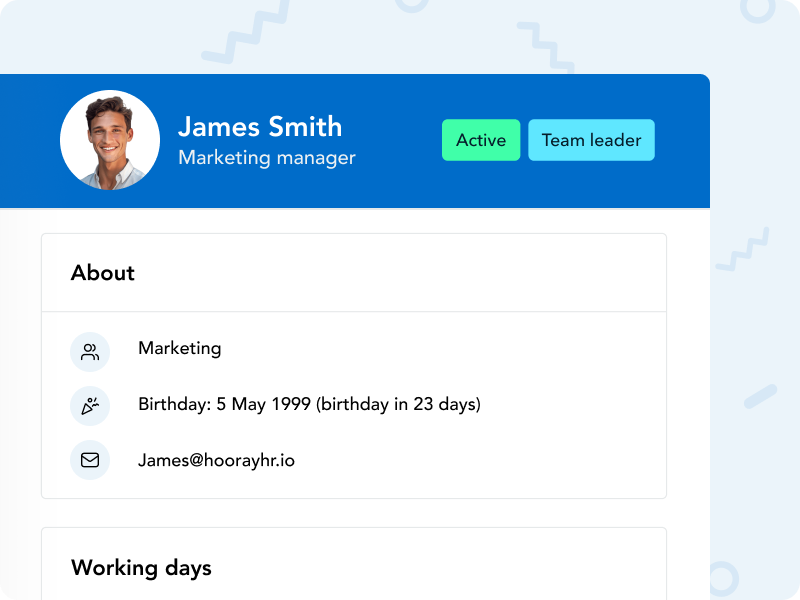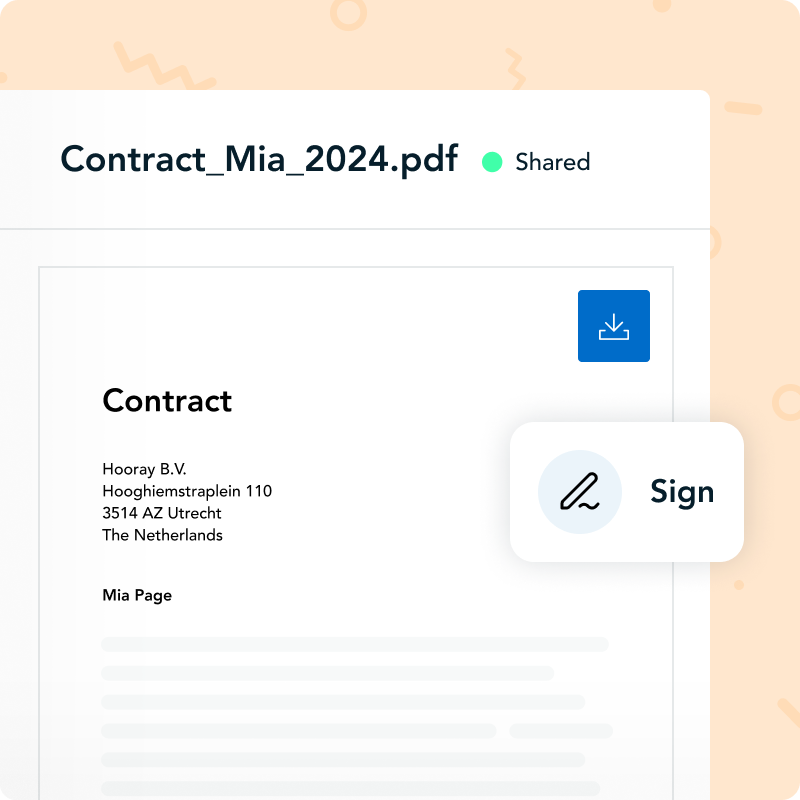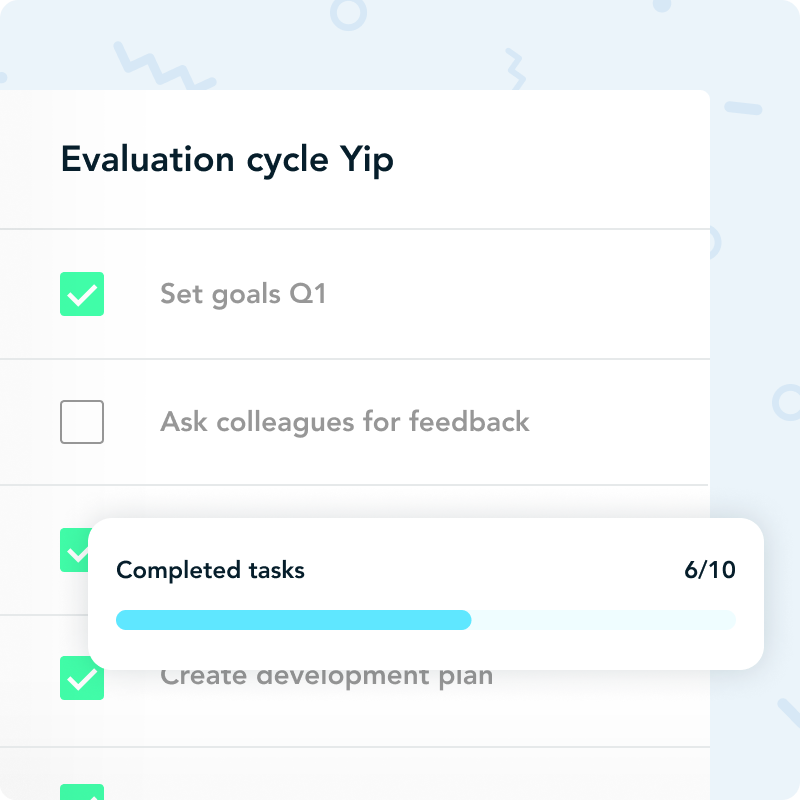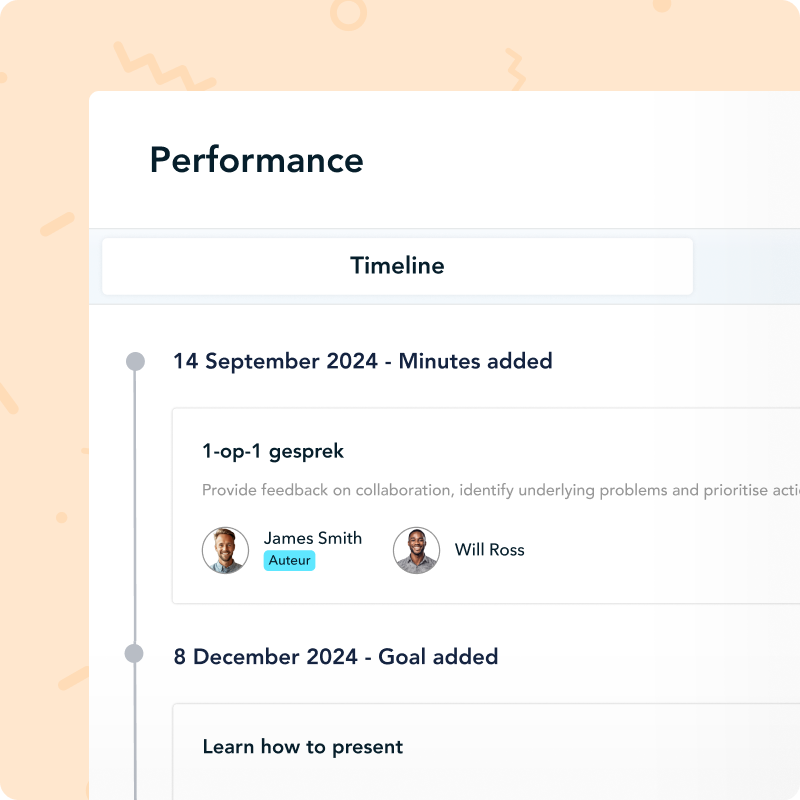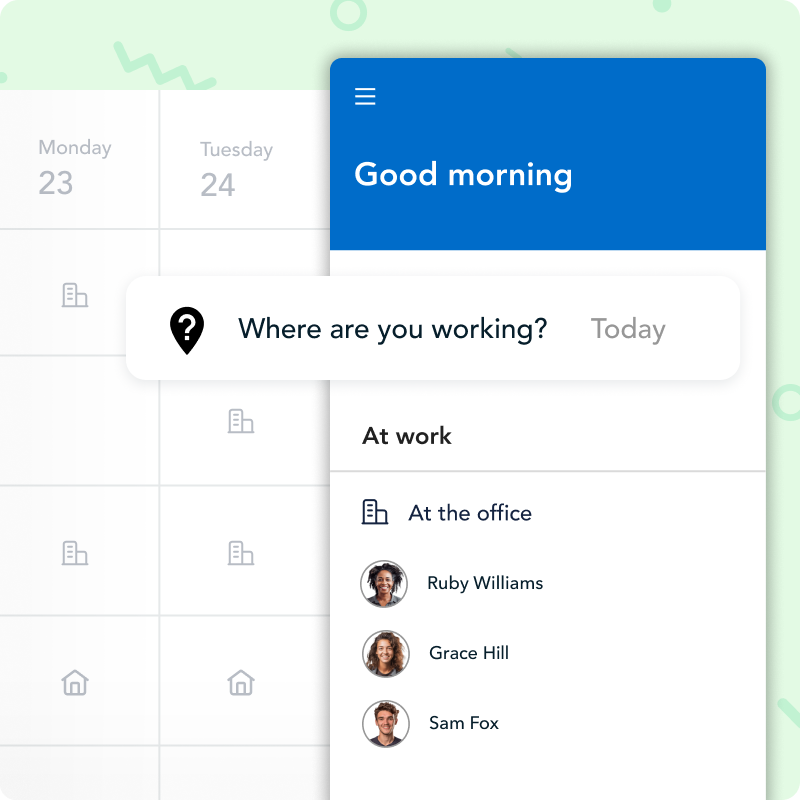Save time on HR and
create a happy team.
The all-in-one HR tool everyone gets.
-
★ 4.9Trusted by 1.000+ companies
-
96% highly satisfied5.000+ support conversations
-
Safe and secureISO27001 and GDPR-proof
See what's inside
1000+ companies have already put their trust in HoorayHR



40+ integrations with your favourite tools
Easily connect HoorayHR with your other tools and build a single ecosystem for all your HR-related business. Whether it's payroll administration, accounting, your schedule or your workspace.





HoorayHR's four promises

Perfect for SMEs
Local laws and regulations, suited to your country/countries.
Excellent service
96% of our customers is (extremely) satisfied with our customer service!
Easy to use
All your HR tasks taken care of in the blink of an eye. Everyone just gets HoorayHR.
Your data is safe
We are ISO 27001 certified en GDPR proof.This is why HR managers and entrepreneurs are in love with HoorayHR
Schedule a personal demo
Testing out new software can be time-consuming. In order to provide better support and save you some valuable time, we’re offering you to schedule a personal appointment with us free of charge. You’ll know after 30 minutes whether HoorayHR is the right solutions to your HR-related challenges.
View our agenda and schedule an appointment directly!





